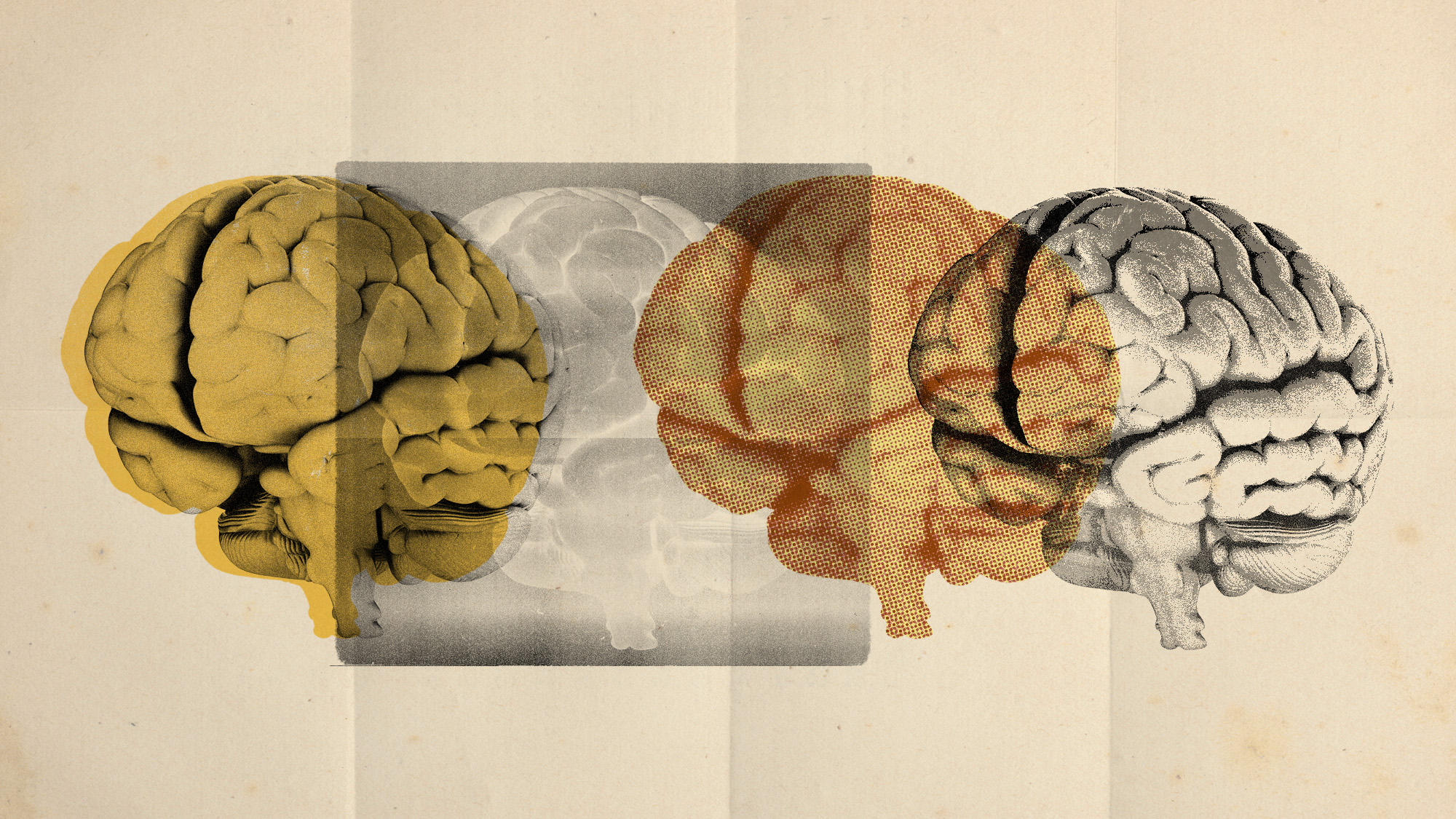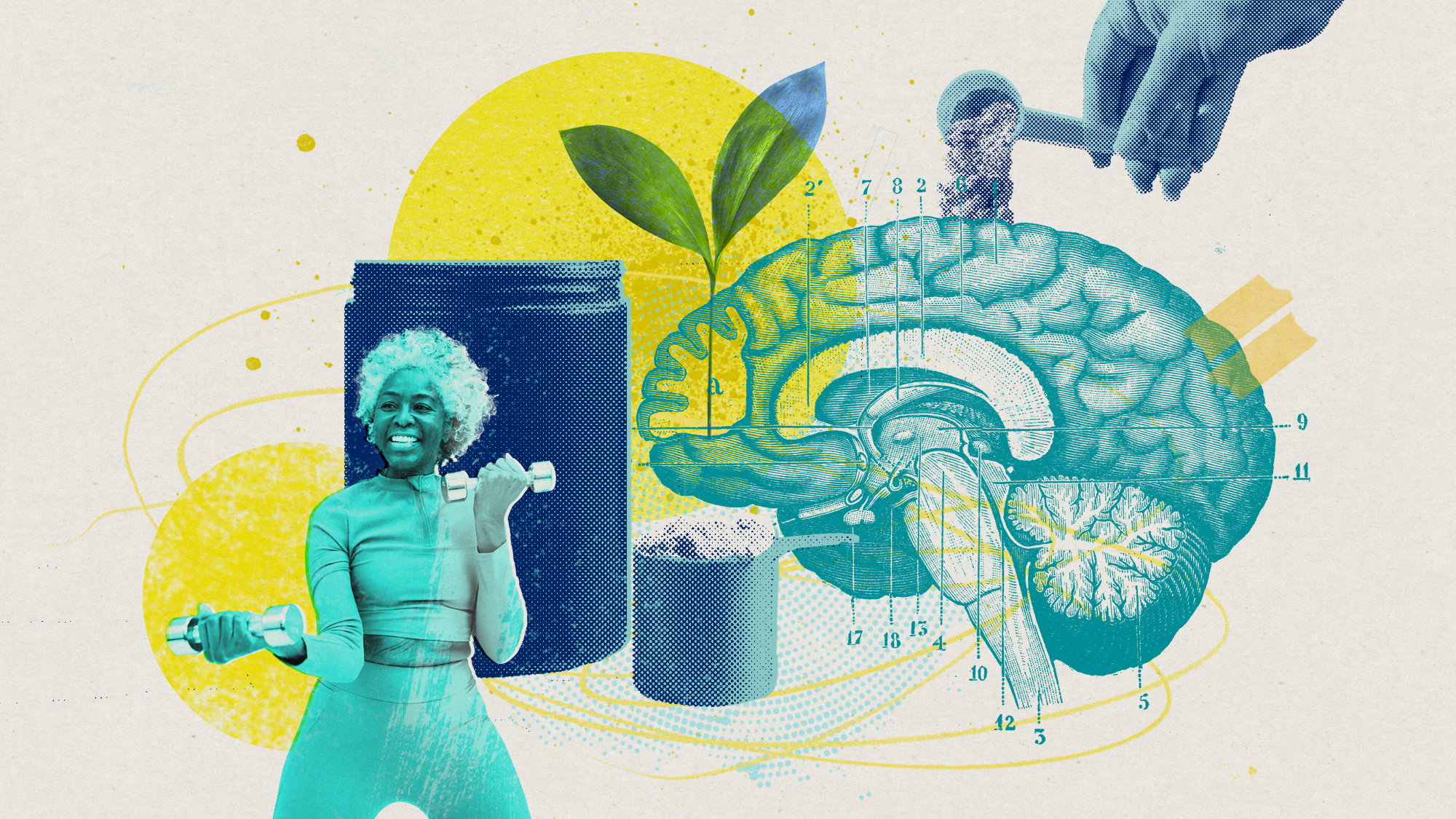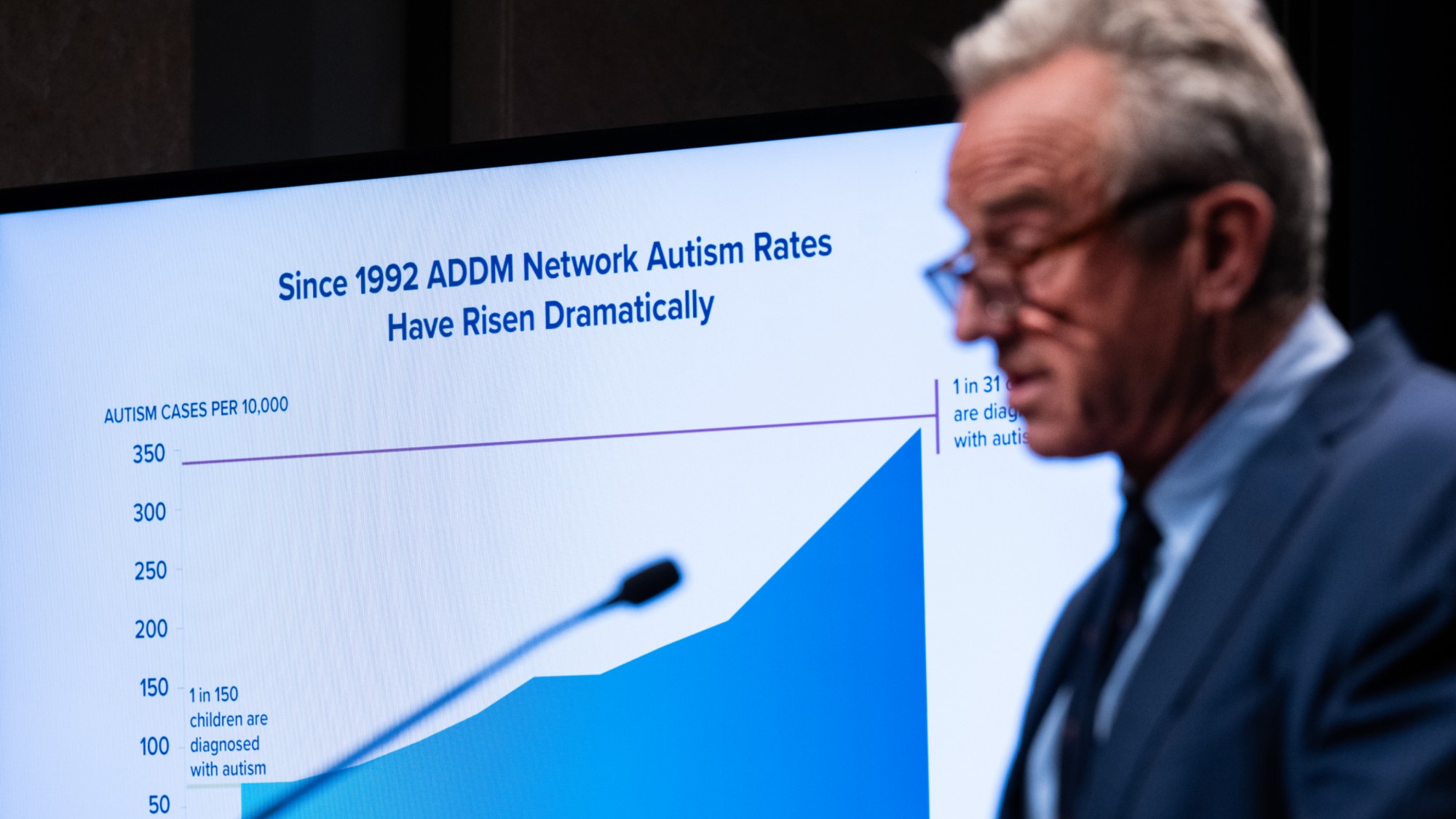The problem with online mental health treatment
Therapy apps proved popular during the pandemic but rapid growth has raised questions

A free daily email with the biggest news stories of the day – and the best features from TheWeek.com
You are now subscribed
Your newsletter sign-up was successful
The pandemic lockdowns, which drove many people into isolation and out of work, prompted a surge in the use of online mental health treatments.
Online therapy companies “plunged in” to capitalise on the rise in depression and anxiety, said The Wall Street Journal (WSJ). Companies used “classic Silicon Valley tactics” of mass advertising and employing contractors to expand quickly and keep costs low.
These direct-to-consumer services have offered a variety of therapies over video, phone and live chat that have traditionally been prohibitively expensive for many people.
The Week
Escape your echo chamber. Get the facts behind the news, plus analysis from multiple perspectives.

Sign up for The Week's Free Newsletters
From our morning news briefing to a weekly Good News Newsletter, get the best of The Week delivered directly to your inbox.
From our morning news briefing to a weekly Good News Newsletter, get the best of The Week delivered directly to your inbox.
The models for many of these businesses, often backed by venture capitalist firms, can be “badly suited to the sensitive activity of treating mental health”, said the WSJ. This has been apparent more recently with a number of prominent companies in the burgeoning industry running into controversies concerning the quality of treatment, recruitment and training of staff, prescription of drugs, and handling of patient data.
Where did these companies come from?
Even prior to the pandemic, the use of “telehealth”, wrote Time magazine, was “pitched as the future of medicine”, helping to “streamline and improve access to care”. The pandemic triggered a huge increase in demand for these services, and a host of start-ups appeared to target an industry in “desperate need of innovation”.
These companies advertise “aggressively on social media”, which attracts a “specific type of customer”, mainly “college-educated and wealthy”, added Time.
BetterHelp, one of the most popular online therapy services, has experienced record growth in part due to its social media advertising and celebrity endorsements. According to Behavioral Health Business, BetterHelp served 2.5 million users globally in 2021 and had total revenues of $700m. Cerebral, a San Francisco start-up that launched in 2020, was worth $4.8bn at the end of 2021 after receiving funding.
A free daily email with the biggest news stories of the day – and the best features from TheWeek.com
What are the problems?
Though “research suggests therapy delivered online can be effective”, there are significant questions over the quality of care, with reports of “inadequate training and pay for therapists”, said the Los Angeles Times.
A former therapist for online therapy company Talkspace told the WSJ that “it lowered the bar for hiring and training” of clinicians as demand soared during the pandemic. The “rush of clients” meant that training for therapists was eventually being carried out after they had “already started seeing clients”.
These companies tend to also attract less experienced therapists “because pay is typically lower than what therapists in private practices generally earn”, said the LA Times. Despite a large number of positive online reviews, BetterHelp faced a recent backlash on TikTok for its quality of care, with videos of negative experiences with its therapists attracting millions of views across the app.
An investigation by Jezebel in 2020 also highlighted issues around how companies use the data acquired through their apps. The investigation, which focused on BetterHelp, found that it shared anonymised “metadata from every message” including “what time of day we were going to therapy, our approximate location, and how long we were chatting on the app” with Facebook. A 2022 study in the Australian & New Zealand Journal of Psychiatry (ANZJP) reported that 80% of the online therapy apps it investigated “transmitted user data to Facebook and Google, but only 40% of those apps disclosed this in a privacy policy”.
In the US, federal authorities have already begun “probing prescription practices” of some of the start-ups, including Done and Cerebral, said Time. Cerebral, which former employees said “overprescribes stimulants for ADHD”, was dropped by US pharmacy giants CVS and Walmart, who now refuse to fill its prescriptions, as well as those from Done.
The WSJ reported that “Cerebral executives pitched its investors on the superior profitability of prescribing stimulants such as Adderall”, and some of its clinicians “felt pressured to prescribe the drugs”. Both Cerebral and Done have said that “they don’t pressure clinicians” and that they provide an “essential service”. Cerebral said it was “cooperating with the investigations”.
What next for online therapy?
Kyle Zebley, from the American Telemedicine Association (ATA), told Time that despite the issues, “telehealth is here to stay”. However, there are signs that the “telemental-health bubble is popping”, said the magazine, with investments falling in the first half of 2022.
“A common mentality” among online therapy start-ups, said Time, remains “growth above all else – even if it means cutting corners”. To survive, and offer a streamlined and affordable service, “the industry must do better if it is to live up to its promise”.
The ANZJP study concluded that there had to be a “balanced view of digital interventions in mental health”. When “blended” with in-person treatments they will “radically improve the availability of mental health care”.
Richard Windsor is a freelance writer for The Week Digital. He began his journalism career writing about politics and sport while studying at the University of Southampton. He then worked across various football publications before specialising in cycling for almost nine years, covering major races including the Tour de France and interviewing some of the sport’s top riders. He led Cycling Weekly’s digital platforms as editor for seven of those years, helping to transform the publication into the UK’s largest cycling website. He now works as a freelance writer, editor and consultant.
-
 6 of the world’s most accessible destinations
6 of the world’s most accessible destinationsThe Week Recommends Experience all of Berlin, Singapore and Sydney
-
 How the FCC’s ‘equal time’ rule works
How the FCC’s ‘equal time’ rule worksIn the Spotlight The law is at the heart of the Colbert-CBS conflict
-
 What is the endgame in the DHS shutdown?
What is the endgame in the DHS shutdown?Today’s Big Question Democrats want to rein in ICE’s immigration crackdown
-
 ‘Longevity fixation syndrome’: the allure of eternal youth
‘Longevity fixation syndrome’: the allure of eternal youthIn The Spotlight Obsession with beating biological clock identified as damaging new addiction
-
 RFK Jr. sets his sights on linking antidepressants to mass violence
RFK Jr. sets his sights on linking antidepressants to mass violenceThe Explainer The health secretary’s crusade to Make America Healthy Again has vital mental health medications on the agenda
-
 The app tackling porn addiction
The app tackling porn addictionUnder the Radar Blending behavioural science with cutting-edge technology, Quittr is part of a growing abstinence movement among men focused on self-improvement
-
 Scientists have identified 4 distinct autism subtypes
Scientists have identified 4 distinct autism subtypesUnder the radar They could lead to more accurate diagnosis and care
-
 'Wonder drug': the potential health benefits of creatine
'Wonder drug': the potential health benefits of creatineThe Explainer Popular fitness supplement shows promise in easing symptoms of everything from depression to menopause and could even help prevent Alzheimer's
-
 Fly like a breeze with these 5 tips to help cope with air travel anxiety
Fly like a breeze with these 5 tips to help cope with air travel anxietyThe Week Recommends You can soothe your nervousness about flying before boarding the plane
-
 RFK Jr.'s focus on autism draws the ire of researchers
RFK Jr.'s focus on autism draws the ire of researchersIn the Spotlight Many of Kennedy's assertions have been condemned by experts and advocates
-
 Mental health: a case of overdiagnosis?
Mental health: a case of overdiagnosis?Talking Point Issues at 'the milder end of the spectrum' may be getting wrongly pathologised